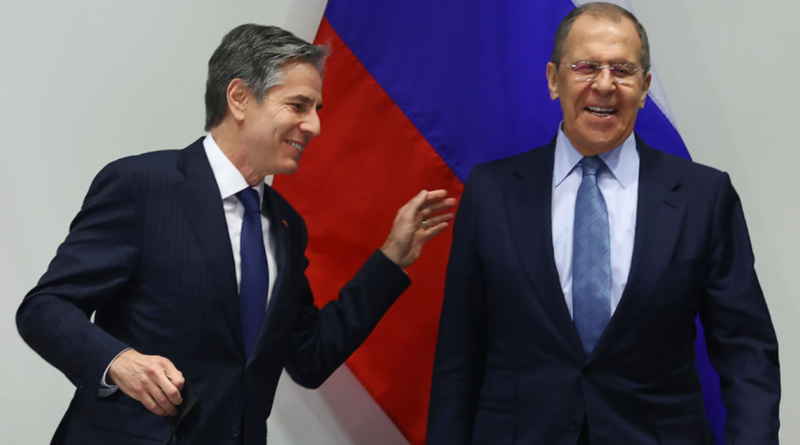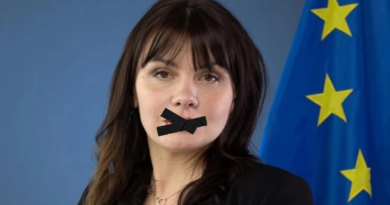Containing Mr Krastev
The limits of Realpolitik
Isn’t the NYT lucky to have my countryman Ivan Krastev as a guest Opinion writer? He can always be relied on for well-written arguments and a nice juicy subtext. Take his most recent NYT piece, published last week.
This expatiates on the virtues of moral relativism in American and global politics. It preaches that the greatest vice in politics is hypocrisy, not abuse of power. And, after a nod towards “speaking truth to power”, it ends with a truly revealing sentence: “The international legitimacy of democratic governments comes from speaking truth about power”. Which is a pretty good statement of the Realpolitik principle—especially if your definition of who is democratic is elastic enough.
Let’s cut to the chase. This article could have had no purpose other than to call on the United States—on the eve of Secretary Blinken’s meetings with Russian Foreign Minister Sergey Lavrov and President Biden’s encounter with President Vladimir Putin—to back down from the tough foreign policy line it has been taking with the Kremlin.
Now, if a Russian political scientist had written such a piece, the NYT would immediately have been accused of peddling the Kremlin’s foreign policy agenda. But Mr Krastev is based in Vienna and passes for an independent and influential East European intellectual. So it’s an interesting and astute analysis instead.
Mr Krastev’s independence should perhaps not be overstated. That’s not (necessarily) to doubt his honesty—much less his intellect. But everyone has a niche. Indeed, Mr Krastev has several, and one of them is as an intellectual mediator between the Kremlin and the West. Which means that he—and quite a few others like him—suffer as a result of extreme confrontation and resurgent Cold War, as the space for “mediation” disappears. He’s also a member of the Valdai Club, bastion of Realpolitik and effectively the Kremlin’s Westward-looking forum-cum-think-tank. And, to put it bluntly, as an institution, the Valdai Club’s function is to produce pro-appeasement verbiage. Verbiage that extends the range of tolerance for Mr Putin’s new extremes in power politics.
These articles analyses and comments are made possible thanks to your empathy and contributions, which are the only guarantors of independence and objectivity in our work. The Alternatives and Analysis team.
A time of extremes
And “extremes” is the right word. For this is a time when Russia has crossed all conceivable red lines of Western tolerance.
Russia has annexed foreign territories. It is keeping hundreds of thousands of troops on its border with Ukraine and—according a recent EU External Action Service report, quoted by Bloomberg—is ready to integrate parts of Eastern Uktaine under its control. Russian secret agents are blowing up arms depots and killing civilians in NATO member countries with chemical weapons. Russian hackers have interfered in Western electoral processes and blocked critical infrastructure in ways that spread chaos and destruction.
In these circumstances, an appeal for “business as usual” with Putin’s Russia isn’t mere “Schroderization” – the hope that, if you do enough trade with authoritarian regimes over a long enough period of time, they will absorb Western values by some sort of osmosis. It is an outright betrayal.
There is really no alternative to containing Russia. Yes, partial de-escalation is conceivable and desirable. But indulgence for the crimes of the Putin regime isn’t an option even when wrapped in nice words. It amounts to a surrender of principles and values without which our societies cannot function. We really must stand up for those principles. And stand firm.
It depends what you mean by….
Ah, but that’s where relativism comes in. There’s democracy and democracy, thinks Mr Krastev. Take Viktor Orban, He may not be a liberal democrat in the classical sense. But his authoritarian style has democratic support and a conservative lustre. And anyway, liberal democracy is old fashioned. Hungarian democracy is essentially a one-horse race—therefore it’s a democracy, albeit a hypocritical one.
But that’s a slippery slope. What about Russia? Putin says it’s a democracy. And, let’s face it, Putin is not without substantial popular support. Of course, there are little details like the imprisonment or outlawing (pending legislation in the GosDuma) of political opponents, the rigging of elections, and the closure of opposition parties. But isn’t it a tad pedantic to say that these make democracy merely notional?
That’s where relativism gets you. That’s why agreeing with Mr Krastev would add credence to Putin’s perverse reading of democracy. And, incidentally, would do so in return for what might be almost nothing—for a questionable and reversible de-escalation of tensions between the United States and Russia. Remember “reset”?
And let’s not fool ourselves about what’s at stake. It’s not just the political—and physical—lives of Aleksei Navalny and Mr Putin’s other opponents. It’s also the national interests of the Western democracies. The earliest possible containment has always been the least-cost option for the West in terms of its welfare and security. Softer and more conciliatory foreign policy alternatives always end in tears—not to mention blood and sweat.
Succumbing to Mr Putin’s mix of threats and charm encourages his opportunistic and aggressive conduct. And it allows him to keep passing on to his compatriots the bill for his political, moral, economic, and social failures at home and abroad. For example, restricting local staff in the US consular section deprives Russian citizens of their right to travel, trade and education in the United States.
In sum: returning to the Cold War is not the choice of NATO and the EU. But it’s the only option left. And if we don’t take that option? Simple: Putin wins in his world of zero-sum games.
Ilian Vassilev
Bulgarian Ambassador to the Russian Federation – 2000 – 2006
The only Bulgarian among the 89 EU citizens banned from entry into Russia in Mr Putin’s first retaliatory list, post-Crimea.
Ilian Vassilev
Thank you for your donations via PayPal and bank transfers to IBAN BG58UBBS80021090022940




